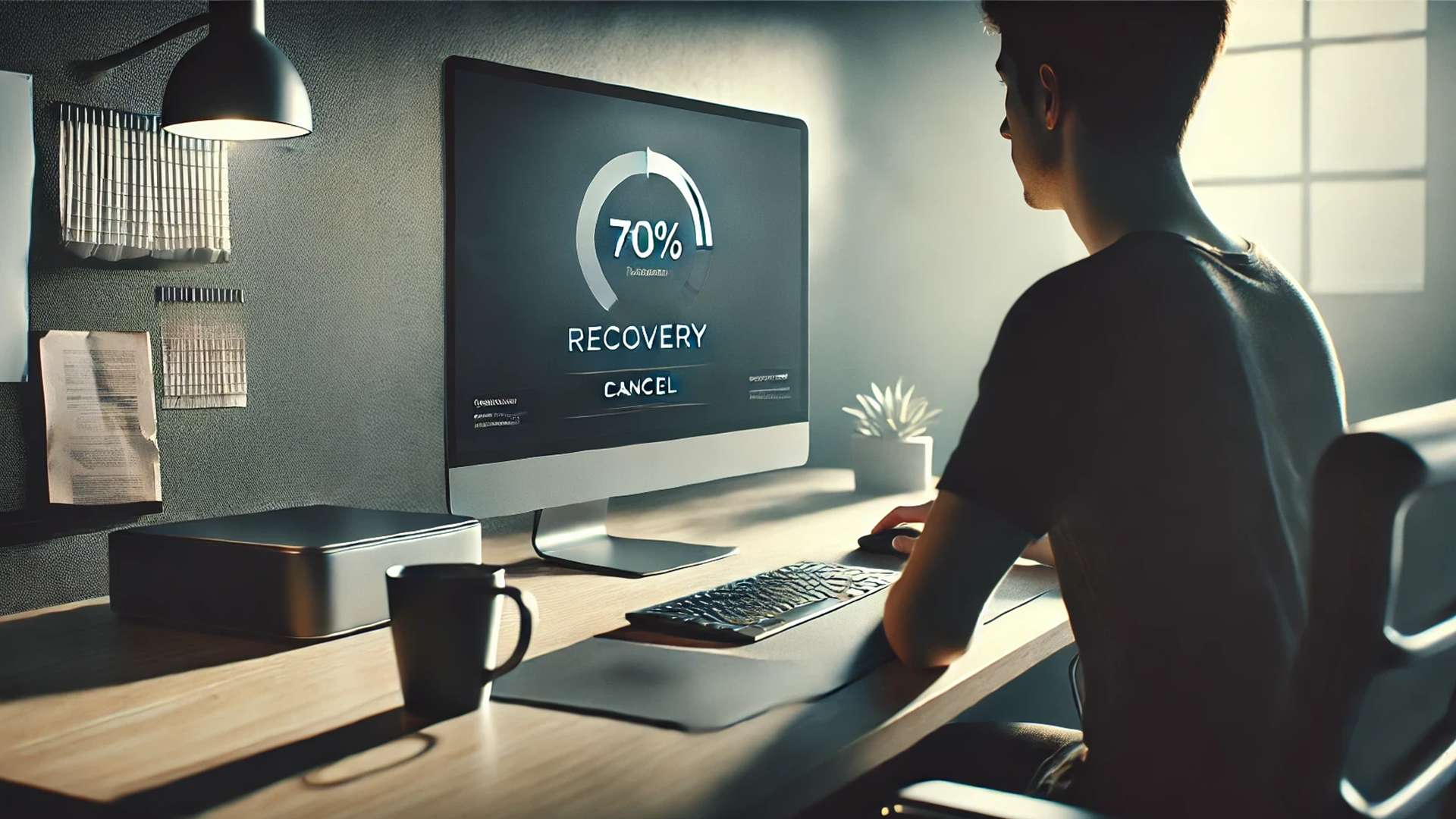
Thank you
Our team of industry domain experts combined with our guaranteed SLAs, our world class technology .


Get Immediate Help
In the rapidly evolving retail landscape of the UK, businesses face numerous challenges, from fluctuating market conditions to the ever-present threat of cyberattacks. Among these challenges, ensuring the protection and recovery of critical business data stands out as a top priority. For retail businesses, a robust backup strategy is not just a technical necessity but a crucial element of business continuity and resilience. This blog delves into the importance of comprehensive backup strategies for protecting retail businesses in the UK, offering insights and practical tips to safeguard your data against potential threats.

The retail sector is heavily reliant on data, from customer information and transaction records to inventory management and supply chain logistics. In the UK, where the retail industry contributes significantly to the economy, the loss or compromise of this data can have severe consequences. This is why protecting retail businesses in the UK requires a strong focus on data protection and recovery.
Data protection is vital for several reasons:
- Customer Trust: Retailers handle vast amounts of customer data, including payment details and personal information. Protecting this data is essential to maintaining customer trust and loyalty.
- Regulatory Compliance: In the UK, data protection laws such as the General Data Protection Regulation (GDPR) impose strict requirements on how businesses handle personal data. Non-compliance can result in hefty fines and legal repercussions.
- Business Continuity: Data loss due to cyberattacks, hardware failures, or natural disasters can disrupt business operations, leading to financial losses and reputational damage. A solid backup strategy ensures that businesses can recover quickly and continue operations with minimal disruption.

Developing a comprehensive backup strategy is not just about storing data; it involves a detailed plan that covers various aspects of data protection, from regular backups to disaster recovery. Here are the key elements to consider:
1. Regular Data Backups
The cornerstone of any backup strategy is regular data backups. This involves creating copies of all critical data at scheduled intervals, ensuring that the most recent version is always available in case of data loss.
- Frequency: Depending on the size of your business and the volume of data, backups should be performed daily, weekly, or even hourly.
- Automated Backups: Implement automated backup solutions to minimise human error and ensure that backups are performed consistently.
2. Disaster Recovery Planning
Disaster recovery planning in the UK retail sector is crucial for mitigating the impact of unexpected events such as cyberattacks, hardware failures, or natural disasters.
- Disaster Recovery Solutions: Invest in disaster recovery solutions that offer rapid data recovery, enabling businesses to resume operations quickly after an incident.
- Testing: Regularly test your disaster recovery plan to identify any gaps or weaknesses and make necessary adjustments.
3. Off-Site and Cloud Backups
Relying solely on on-site backups can be risky, especially in the event of physical damage to your premises. Off-site and cloud backups provide an additional layer of security.
- Cloud Backup Solutions: Cloud-based backup solutions offer scalability and flexibility, allowing businesses to store large volumes of data securely. They also provide easy access to data from anywhere, which is essential for remote work environments.
- Off-Site Backups: Store physical backup copies in a secure off-site location to protect against localised disasters such as fires or floods.
4. Data Encryption
Data encryption is a critical component of any backup strategy, ensuring that your data remains secure both in transit and at rest.
- Encryption Standards: Use industry-standard encryption methods to protect your data from unauthorised access. This is especially important for sensitive customer information and financial records.
- End-to-End Encryption: Implement end-to-end encryption for data backups to ensure that data remains protected throughout the backup and recovery process.
5. Backup Redundancy
Redundancy in backups means having multiple copies of your data stored in different locations. This redundancy ensures that even if one backup fails, you still have access to your data.
- Multiple Backup Locations: Store backups in multiple physical and cloud locations to safeguard against simultaneous failures.
- Redundant Systems: Use redundant systems to ensure that backup processes continue even if one system encounters an issue.

Recovering data quickly and efficiently after a loss is just as important as having backups. Retail data recovery solutions in the UK are designed to help businesses restore their data with minimal downtime.
1. Fast Data Recovery
Time is of the essence in retail. Downtime can result in lost sales, damaged customer relationships, and missed opportunities. Therefore, fast data recovery solutions are critical.
- Recovery Time Objectives (RTO): Define your RTO to ensure that your backup and recovery solutions align with your business needs. The shorter the RTO, the faster your business can resume normal operations.
- Instant Recovery: Some solutions offer instant recovery options, allowing you to access critical data within minutes of an incident.
2. Comprehensive Recovery Plans
A comprehensive recovery plan goes beyond just data recovery. It includes steps to restore all aspects of your business operations, from IT systems to customer service.
- Business Continuity Solutions: Implement business continuity solutions that cover all areas of your operations, ensuring a seamless transition from disaster to recovery.
- Training and Awareness: Train your staff on recovery procedures to ensure that everyone knows their role in the event of a data loss incident.
3. Customised Recovery Strategies
Every retail business is unique, and so are its data recovery needs. Customised recovery strategies ensure that your recovery plan is tailored to your specific business requirements.
- Industry-Specific Solutions: Choose data recovery solutions that cater specifically to the retail industry, addressing common challenges such as high transaction volumes and complex inventory management systems.
- Scalable Solutions: Ensure that your recovery solutions can scale with your business as it grows, allowing you to adapt to changing needs and demands.

Disaster recovery is an integral part of a comprehensive backup strategy. For UK retailers, having a robust disaster recovery plan in place is essential for protecting against a wide range of threats, from cyberattacks to natural disasters.
1. Retail Business Continuity Solutions
Business continuity is the ability to maintain operations during and after a disaster. For retailers, this means ensuring that sales, customer service, and supply chain operations continue uninterrupted.
- Continuity Planning: Develop a business continuity plan that outlines how your business will continue to operate during a disruption. This plan should cover all critical areas, including IT systems, communication, and customer service.
- Integrated Solutions: Choose disaster recovery solutions that integrate seamlessly with your existing systems, allowing for quick and efficient recovery.
2. Retail Data Loss Prevention
Data loss prevention (DLP) is a set of strategies and tools designed to prevent data breaches and accidental loss of sensitive information.
- DLP Tools: Implement DLP tools that monitor and control the flow of sensitive data within your organisation. These tools can help prevent data leaks and ensure that your data remains secure.
- Regular Audits: Conduct regular audits of your data protection measures to identify potential vulnerabilities and make necessary improvements.
3. Comprehensive Backup Strategies
A comprehensive backup strategy is the foundation of any disaster recovery plan. By regularly backing up your data and storing it securely, you can minimise the impact of data loss and ensure a swift recovery.
- Regular Updates: Keep your backup strategies up to date with the latest technologies and best practices. Regularly review and update your backup procedures to ensure they remain effective.
- End-to-End Solutions: Choose end-to-end backup solutions that cover all aspects of your data protection needs, from initial backup to final recovery.
In the context of protecting retail businesses in the UK with comprehensive backup strategies, several Microminder CS services would be particularly beneficial:
1. Backup and Disaster Recovery Services
- Data Protection: This service ensures that all critical business data, including customer information, transaction records, and inventory data, is regularly backed up and securely stored. It provides automated backup solutions to prevent data loss due to cyberattacks, hardware failures, or other unforeseen events.
- Rapid Recovery: In the event of data loss, the Backup and Disaster Recovery Services allow for quick restoration of data, minimising downtime and enabling the retail business to resume operations with minimal disruption.
2. Cloud Security Solutions
- Secure Off-Site Backups: Cloud Security Solutions offer secure, off-site backup options that protect retail data from localised disasters. By leveraging cloud storage, businesses can ensure that their data is safe and accessible even if their physical premises are compromised.
- Scalability: These solutions are scalable, allowing retail businesses to adjust their backup and storage needs as they grow. This is especially important for handling large volumes of data that retail operations typically generate.
3. Vulnerability Management Services
- Identifying Weaknesses: This service continuously monitors and assesses the retail business’s IT infrastructure to identify vulnerabilities that could be exploited by cyber threats. It ensures that the systems used for data backups are secure and resilient against attacks.
- Proactive Security Measures: By addressing vulnerabilities proactively, this service helps prevent data breaches and ensures that backup systems remain uncompromised, thus safeguarding the integrity of the backup data.
4. Security Architecture Review Services
- Optimising Backup Strategies: Security Architecture Review Services evaluate the existing backup and disaster recovery plans to ensure they are robust and align with the latest security best practices. This service helps retail businesses in designing and implementing a comprehensive and resilient backup strategy.
- Ensuring Compliance: These services also ensure that the backup and recovery processes comply with industry regulations and standards, reducing the risk of non-compliance penalties.
5. Managed Detection and Response (MDR) Services
- Continuous Monitoring: MDR services provide continuous monitoring of the retail business’s IT environment to detect and respond to threats in real-time. This is crucial for preventing attacks that could compromise backup data or disrupt the backup process.
- Incident Response: In the event of a cyberattack, MDR services offer rapid response capabilities to contain the threat and initiate recovery processes, ensuring that the impact on the business is minimal.
6. Third-Party Risk Assessment Services
- Securing Supply Chain: Many retail businesses rely on third-party vendors for IT services, including backup solutions. Third-Party Risk Assessment Services ensure that these vendors comply with the business’s security standards, reducing the risk of data breaches through the supply chain.
- Mitigating External Risks: This service helps identify and mitigate risks associated with third-party providers, ensuring that the backup solutions they offer are secure and reliable.
These Microminder CS services provide a comprehensive approach to ensuring that UK retail businesses can protect their critical data and maintain business continuity through effective backup and disaster recovery strategies. By implementing these services, organisations can mitigate risks, safeguard their operations, and ensure resilience against potential disruptions.
Protecting retail businesses in the UK requires a proactive approach to data protection and recovery. By implementing comprehensive backup strategies, retailers can safeguard their critical data, maintain compliance with regulations, and ensure business continuity in the face of unexpected events. Whether you're a small retailer or a large enterprise, investing in robust data protection and disaster recovery solutions is essential for long-term success in today's competitive retail environment.
Don't wait for a disaster to strike—start protecting your retail business today with comprehensive backup strategies. Implementing robust data protection and disaster recovery solutions can safeguard your business, protect customer trust, and ensure that you can continue to operate even in the face of unexpected challenges. Invest in the right solutions now to secure your future in the UK retail market.
Don’t Let Cyber Attacks Ruin Your Business
Call
UK: +44 (0)20 3336 7200
KSA: +966 1351 81844
UAE: +971 454 01252
Contents
To keep up with innovation in IT & OT security, subscribe to our newsletter
Recent Posts
Penetration Testing | 10/11/2025
Cloud Security | 07/11/2025
Cybersecurity | 06/11/2025
What is a comprehensive backup strategy, and why is it important for retail businesses?
A comprehensive backup strategy involves regularly creating copies of all critical business data and storing them securely, both on-site and off-site. This is crucial for retail businesses as it ensures data can be quickly recovered in the event of a cyberattack, hardware failure, or natural disaster, minimising downtime and protecting against data loss.How often should retail businesses back up their data?
The frequency of backups depends on the volume and criticality of the data. For most retail businesses, daily or even hourly backups are recommended to ensure that the most recent data is always available for recovery in case of an incident.What are the benefits of using cloud-based backups for retail businesses?
Cloud-based backups offer several advantages, including scalability, remote access, and enhanced security. They allow retail businesses to store large amounts of data off-site, protecting it from localised disasters and enabling easy recovery from any location.What is the difference between backup and disaster recovery?
Backup involves creating copies of data to protect against loss, while disaster recovery is the process of restoring data and resuming normal business operations after a disruptive event. Both are essential components of a comprehensive data protection strategy.How can retail businesses ensure their backups are secure?
Retail businesses can ensure backup security by encrypting their data, using secure backup storage solutions (both on-site and in the cloud), and implementing multi-factor authentication for access to backup systems. Regularly testing the backup and recovery process also helps ensure data integrity and security.